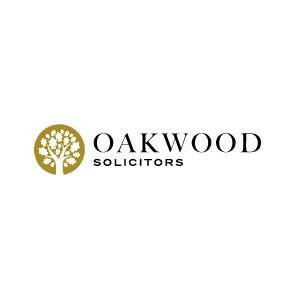Best FDA Law Lawyers in Leeds
Share your needs with us, get contacted by law firms.
Free. Takes 2 min.
List of the best lawyers in Leeds, United Kingdom
About FDA Law in Leeds, United Kingdom
FDA Law refers to the regulation and oversight of food, drugs, and related products to ensure their safety, quality, and efficacy. In the United Kingdom, this body of law is shaped by national legislation as well as international standards. While the UK does not have a "Food and Drug Administration" like the United States, it has government agencies that play similar roles, such as the Food Standards Agency (FSA) and the Medicines and Healthcare products Regulatory Agency (MHRA). Leeds, as a hub of pharmaceutical and food industry activity, is significantly affected by these regulatory bodies. Legal professionals in Leeds specializing in FDA Law help clients navigate the complex frameworks controlling food manufacturing, pharmaceuticals, medical devices, cosmetics, and dietary supplements.
Why You May Need a Lawyer
Legal help in FDA Law is often needed for a variety of reasons. Businesses developing, manufacturing, or marketing food, beverages, supplements, or pharmaceutical products must comply with strict regulations. Breaching these rules can result in product recalls, fines, or criminal penalties. Individuals and organizations may require advice on product approvals, labelling, marketing claims, or dealing with enforcement actions by regulatory agencies. Disputes related to intellectual property, import or export compliance, and consumer complaints are also common. Whether you are starting a new food business, facing a regulatory investigation, or planning to introduce a medical device to the market, a lawyer with FDA Law expertise in Leeds can provide crucial guidance.
Local Laws Overview
FDA Law in Leeds is guided by national legislation, including the Medicines Act 1968, the Human Medicines Regulations 2012, the Food Safety Act 1990, and related secondary legislation. Post-Brexit, the UK has established its own regulatory standards, although EU law continues to influence some areas. The MHRA regulates medicines, medical devices, and blood components, while the FSA covers food safety and hygiene. Leeds businesses must ensure compliance with these bodies' requirements, including obtaining the necessary licenses, adhering to manufacturing standards, proper labelling, and reporting adverse events. The area is also subject to local council bylaws affecting food hygiene ratings and local inspections, which can impact how businesses operate.
Frequently Asked Questions
What is FDA Law, and does it apply in Leeds?
FDA Law refers broadly to laws that regulate food, drugs, and related products. In the UK, including Leeds, it is enforced by agencies such as the MHRA and FSA, even though the term "FDA" is not officially used here.
Who regulates medicines and medical devices in Leeds?
The MHRA is responsible for the regulation of medicines, medical devices, and clinical trials within the UK, including Leeds.
What government agency oversees food safety in Leeds?
The Food Standards Agency (FSA), together with local Leeds City Council officers, oversee food safety, hygiene, and labelling.
Do EU regulations still impact FDA Law in Leeds?
Since Brexit, some EU laws have been retained or adapted, but the UK now has the authority to set its own standards. In certain cases, equivalence with EU regulations is maintained, particularly for products traded with Europe.
How does product approval work for medicines and medical devices?
Manufacturers must apply for marketing authorisations from the MHRA before selling medicines or certain medical devices. Products must meet specific safety, quality, and efficacy standards.
What is required on food labels in Leeds?
Food labels must include details such as ingredients, allergens, nutritional information, best before or use by dates, and the name and address of the food business. Misleading information is prohibited.
What are the penalties for breaching FDA Law regulations?
Penalties can include fines, product recalls, enforcement notices, removal of products from the market, and in serious cases, criminal prosecution.
Can I sell herbal supplements without regulation?
Herbal and dietary supplements are regulated in the UK. They must comply with safety standards, proper labelling, and advertising requirements set by the FSA and MHRA.
Do small food businesses in Leeds need to register with authorities?
Yes, food businesses must register with the local Leeds City Council and comply with food hygiene regulations, regardless of size.
How can a lawyer help with FDA Law matters in Leeds?
A lawyer can help ensure compliance, respond to regulatory inquiries, guide you through licensing or authorisation processes, defend against enforcement actions, and provide strategic advice on product development and marketing.
Additional Resources
- Food Standards Agency (FSA): Provides guidance on UK food safety, hygiene, and labelling regulations. - Medicines and Healthcare products Regulatory Agency (MHRA): Regulates medicines, medical devices, and clinical trials in the UK. - Leeds City Council Environmental Health: Local authority for food business registration, inspections, and enforcement. - Association of the British Pharmaceutical Industry (ABPI): Information and support for pharmaceutical businesses. - British Food Standards Association: Resources for food businesses in ensuring compliance with UK law.
Next Steps
If you believe you need legal assistance with FDA Law matters in Leeds, begin by gathering all relevant documentation, such as regulatory correspondence, product labels, inspection reports, business registrations, and internal protocols. Clarify your specific issue or question, whether it relates to product approval, compliance, or responding to an enforcement notice. Contact a local solicitor or law firm with experience in FDA Law or regulatory compliance. Many legal professionals offer initial consultations to evaluate your situation and recommend a way forward. Staying proactive and seeking early guidance can help protect your business, ensure legal compliance, and avoid or mitigate penalties.
Lawzana helps you find the best lawyers and law firms in Leeds through a curated and pre-screened list of qualified legal professionals. Our platform offers rankings and detailed profiles of attorneys and law firms, allowing you to compare based on practice areas, including FDA Law, experience, and client feedback.
Each profile includes a description of the firm's areas of practice, client reviews, team members and partners, year of establishment, spoken languages, office locations, contact information, social media presence, and any published articles or resources. Most firms on our platform speak English and are experienced in both local and international legal matters.
Get a quote from top-rated law firms in Leeds, United Kingdom — quickly, securely, and without unnecessary hassle.
Disclaimer:
The information provided on this page is for general informational purposes only and does not constitute legal advice. While we strive to ensure the accuracy and relevance of the content, legal information may change over time, and interpretations of the law can vary. You should always consult with a qualified legal professional for advice specific to your situation.
We disclaim all liability for actions taken or not taken based on the content of this page. If you believe any information is incorrect or outdated, please contact us, and we will review and update it where appropriate.











